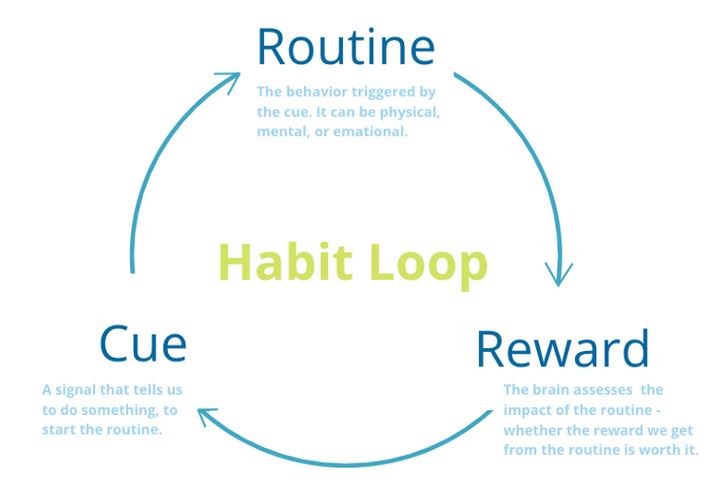Delayed Gratification
The Human Brain Did Not Evolve For A Life Of Delayed Gratification
How to apply the long game approach to your life and sacrifice short term gains for long-term wins
Delayed Gratification - Overview
Delayed gratification means to delay gains now to get more later.
This can be described as the long game approach to any area of life that sacrifices short term gains for long-term wins.
This involves having a long term goal and taking the necessary steps now to set yourself up for long term success.
There is one major problem with this, and it is nothing to do with will-power, commitment or focus or any form of conscious effort and it is that human brain has not yet evolved to accommodate delayed gratification.
In "Atomic Habits" we noted that:
In the modern world we live in a "delayed return environment" where the ability to accept deferred gratification is critical.
Author James Clear says:
"In modern society, many of the choices you make today will not benefit you immediately…You live in what scientists call a delayed-return environment because you can work for years before your actions deliver the intended payoff."
But given that our brains are hardwired for instant gratification, they process and
evaluate potential rewards by ascribing a higher value to the present and a discount to the future, so there is a conflict.
From an evolutionary perspective, back when we were living on the plains of Africa most of our decisions had an immediate impact and thus our focus was on the present or near future.
In life on the Savannah plains of Africa it made sense to place a premium on instant gratification. Our survival often depended on it. So, our brains evolved over time to prefer quick hits of pleasure to the kind of satisfaction one might get from long-term accomplishments.
The earliest remains of modern humans are approximately two hundred thousand years old and they had a brain relatively similar to ours.
As Clear succinctly puts it:
"You are walking around with the same hardware as your Paleolithic ancestors."
The Human Brain Did Not Evolve For A Life Of Delayed Gratification
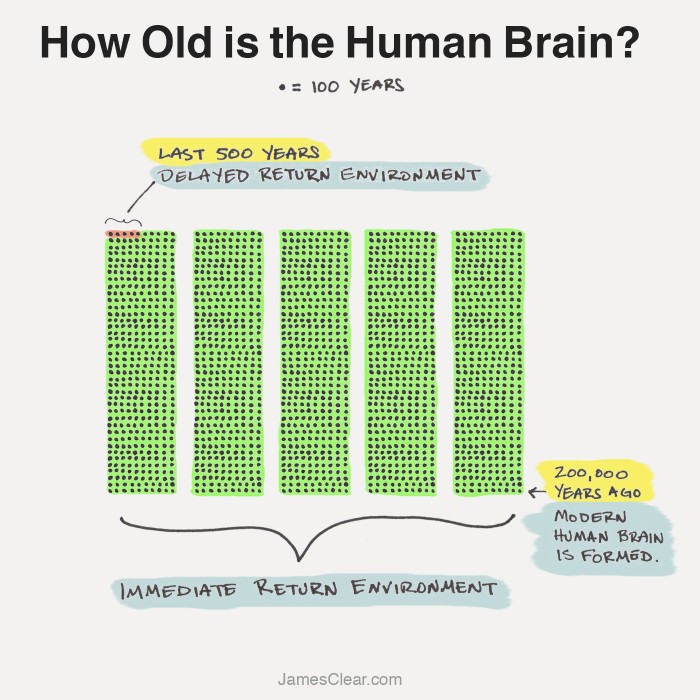
James Clear - The Evolution Of Anxiety
The pace of
change has increased exponentially compared to prehistoric times. In the
last 100 years we have seen the rise of the car, the airplane, the
television, the personal computer and the internet. Nearly
everything that makes up your daily life has been created in a very
small window of time - much of it in our lifetimes.
Whilst a lot can happen in 100 years, from an evolutionary perspective 100 years is nothing.
The modern human brain spent hundreds of thousands of years evolving for the immediate return environment - and suddenly it changed dramatically to a delayed returns environment.

Professor William Irvine Explains Evolutionary Psychology and Thinking Systems In Our Brain:
How Hardwired Is Human Behavior - Harvard Business Review
Setting The Scene For Delayed Gratification
Before we get into the detail of how to deal with the uncertainties and stresses of delayed gratification I want to set out some context and parameters for our approach and recommended strategies:
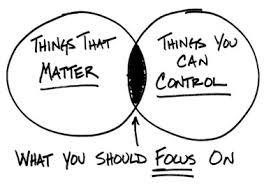
[1] Focus on things you can control, ignore the rest.
The Stoics referred to this as "the dichotomy of control".
Modern psychologists refer to an “internal locus of control” and an “external locus of control.” What this basically means is that if you have internal locus of control you will most likely believe that you are responsible for most of what happens in your life - to the extent that your response to events determines the outcomes you experience.

[2] Live life authentically by making your own choices for which you alone accept total responsibility.
- An existentialist perspective on life Is about living authentically by making your own choices for which you alone accept total responsibility
- Is also about rising above your circumstances which is seen as transcendence - this gives authentic meaning and can act as agent of change to those circumstances
- Views human existence as having no meaning other than that which you choose to give it

[3] Understanding that you are not your thoughts and it is not the content of your thoughts that matters it is your relationship with them that counts.
In You Are Not Your Thoughts, we set the scene as to how we deal with our negative thoughts, such as thoughts of anger, accusation and despair. In summary:
- These thoughts arise automatically and are largely unconscious in their origination.
- These thoughts originate from the “hardware” and “software” in our brains.
- The best way of becoming more aware of the repetitive nature of these thoughts, and the triggers that give rise to them is by the practice of mindfulness.
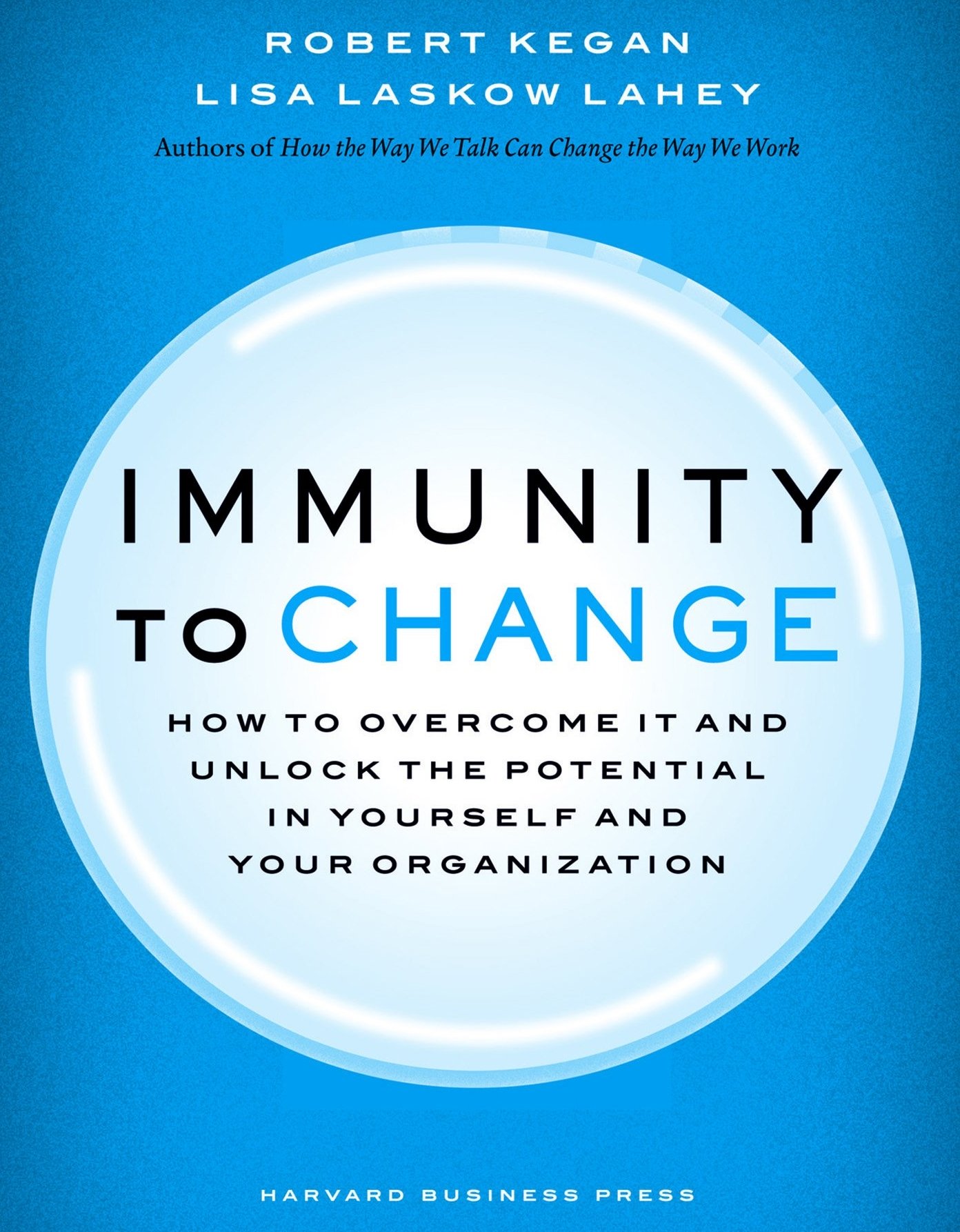
[4] Your failure to achieve a personal change goal isn’t the result of a lack of will-power, it’s your "emotional immune system" trying to protect you.
Immunity to change can be defined as a "hidden commitment", with an underlying root cause, that competes and conflicts with a stated commitment to change.
It these hidden commitments that cause you to not change and to fail to realise your best intentions.
Put simply, it is these hidden commitments that cause us to not keep New Year resolutions, to fail with diets, to not stop smoking etc.
Here's how to resolve your immunity to change.
- "Instead of worrying about living longer, focus on taking a walk each day.
- Instead of worrying about whether your child will get a college scholarship, focus on how much time they spend studying today.
- Instead of worrying about losing enough weight for the wedding, focus on cooking a healthy dinner tonight.
The key insight that makes this strategy work is making sure your daily routine both rewards you right away - immediate return - and resolves your future problems - delayed return." [James Clear - The Evolution of Anxiety]
[2] Measure The Small Steps In The Process
Animals in the wild are continuously receiving feedback on the things that cause them stress.The effect of this is that they know whether or not they should feel stressed.
Without measurement you have no feedback.
James Clear:"The first thing you can do is measure something:
- You can’t know for certain how much money you will have in retirement, but you can remove some uncertainty from the situation by measuring how much you save each month.
- You can’t be sure that you’ll get a job after graduation, but you can track how often you reach out to companies about internships.
- You can’t predict when you find love, but you can pay attention to how many times you introduce yourself to someone new.
The act of measurement takes an unknown quantity and makes it known.
- When you measure something, you immediately become more certain about the situation.
- Measurement won’t magically solve your problems, but it will clarify the situation, pull you out of the black box of worry and uncertainty, and help you get a grip on what is actually happening."
How To Get Better At Getting Started With Delayed Gratification
If you accept that success in any field requires discipline and a preparedness to choose the harder option of delayed gratification then you need to have some simple strategies to help you get better at taking that first step and getting started.
Here are 3 proven and simple steps:
The idea is to make your habits as easy as
possible to start. Anyone can meditate for one minute, read one page, or
put one item of clothing away.
[1] Start Very Small
When you start on the path of creating a new habit, create a "launch habit" that is almost ridiculously simple and small, so small you won't say no because it would seem ridiculous not to do it.
At the starting out stage, doing the habit is what matters and it is far more important than how much you do.
For examples, a few years ago I wanted to go the gym regularly so I set myself the task of just turning up at the gym for 10 mins several times a week. Then I would leave.
After a couple of weeks of this, the habit of going to the gym was starting to get established. I increased the duration of the visit to 15 mins and continued like that for another couple of weeks by which time the habit was stronger and then I increased the duration to 30 mins per visit.
[2] Set Up A "Gateway Habit" with "The 2 Minute Rule"
In "How to Stop Procrastinating With the “2-Minute Rule” James Clear says:
"When you start a new habit, it should take less than two minutes to do. You’ll find that nearly any habit can be scaled down into a two-minute version:
- “Read before bed each night” becomes “Read one page.”
- “Do thirty minutes of yoga” becomes “Take out my yoga mat.”
- “Study for class” becomes “Open my notes.”
- “Fold the laundry” becomes “Fold one pair of socks.”
- “Run three miles” becomes “Tie my running shoes.”
A new habit should not feel like a challenge. The actions that follow can be challenging, but the first two minutes should be easy.
What you want is a
“gateway habit” that naturally leads you down a more productive path."
As with the "Start Very Small" approach, this is a powerful strategy because once you’ve started doing the right thing, it is much easier to continue doing it.
[3] Don't Break The Chain
This approach is all about "the art of showing up" or the power of consistency.
This is an adaptation of the Seinfeld Strategy. A young comic asked Jerry Seinfeld for any tips on how to be a better comic:
"He said the way to be a better comic was to create better jokes and the way to create better jokes was to write every day.
He told me to get a big wall calendar that has a whole year on one page and hang it on a prominent wall. The next step was to get a big red magic marker. He said for each day that I do my task of writing, I get to put a big red X over that day."
Then Seinfeld said:
“After a few days you’ll have a chain. Just keep at it and the chain will grow longer every day. You’ll like seeing that chain, especially when you get a few weeks under your belt.
Your only job is to not break the chain".

Setting Yourself Up For The Long Game
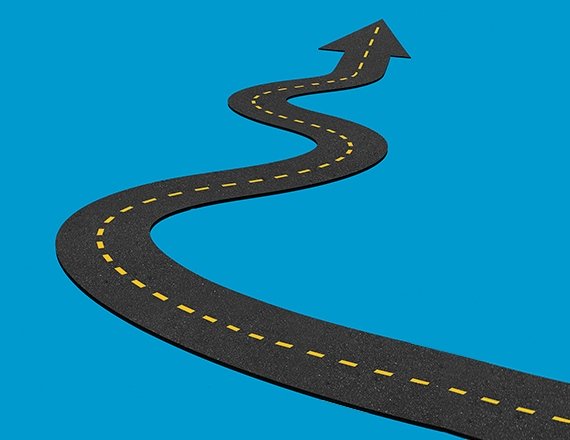
The basic rule here
is to stop optimizing for today and start playing the long game to delayed gratification with these 7 proven strategies:
[1] Adopting the Craftsman Mindset
In "So Good They Can’t Ignore You" Cal Newport cites the comedian Steve Martin, who once said his advice for aspiring entertainers was to “...be so good they can’t ignore you...”
The focus of his book involves picking a skill that is "rare and valuable" and then mastering it until you become "so good they can't ignore you".
[2] Attract Luck - Be The Best At What You Do
Naval Ravikant commenting on what he calls "The Four Kinds Of Luck"
says that:
“...the last kind of luck is the weirdest, hardest kind, where you build a unique character, a unique brand, a unique mindset, which causes luck to find you.”
While you can’t control this fourth, potentially most lucrative kind of luck, you can influence it by committing to being the best at what you do.
[3] Focus On The One Thing
In "The One Thing" Gary Keller maps out a process for focusing your attention and your actions on the achievement of the one big thing you want to achieve by narrowing your present focus down to the one next step you must take to progress you towards that one big thing.
Success
is about doing the one right thing, not about doing everything right.
[4] Benefit From The Power Of Habits
James Clear’s book Atomic Habits explores the long term power of compounding habits, which is a key feature of the long game.
Small habits make a big difference over the long-term.
Habits are the compound interest of self-improvement.
[5] Compound Your Way To Exponential Growth
Compounding is the process whereby a gain made on an invested resource is reinvested alongside the original resource, and further gains are made on that gain thus the growth rate is exponential.
Small improvements accumulate into massive changes.
[6] Be Smarter Rather Than Faster
In The Red Queen Effect we
looked at strategies for negating the red queen effect by operating
smarter rather than running faster and faster just to stand still. Here
are 2 powerful strategies.
(A) Focus On The Few To Find The Many - It's now the 80/20 curve/Pareto Principle that defines our lives.
(B) Benefit From The Fat Tail Fractal Factor - The Top 1% Of Fat Tails Account For 50% Of The Results.
So when focusing on the top 20%, remember that somewhere in amongst that group is a subset - which may be just one or two individuals - who will deliver over 50% of your results.
[7] Live an Antifragile Life
Antifragility is the quality of something that gets better, or thrives, in the presence of disorder.
There are ways in which you can position yourself to make gains from this disorder and get stronger.
Shane Parrish suggests 10 core principles that you can follow.
The Challenges Of The Road Less Traveled
How To Deal With The Challenges Of The Road Less Traveled In A Delayed Return Environment

'The road less traveled' is a phrase popularised by M.Scott Peck with the book of that title about the journey to maturity and growth that lies through confronting life's difficulties and moving through the hard and often painful process of change toward a higher level of self-understanding.
I am using the phrase in the very specific context of the long game which describes an approach to any area of life that sacrifices short term gains for long-term wins. This is about having a long term goal and taking the necessary steps now to set yourself up for a long term success.
Playing the long game and paying the price for delayed gratification is hard enough when you are traveling on a well defined route such as qualifying to be doctor, a lawyer or an academic.
Playing the long game is doubly difficult when you are traveling on a road less traveled that is not well defined, where the milestones and metrics are not known when you start out on this journey.
Examples of the road less traveled are starting a business or any other form of entrepreneurial activity. Other examples could be launching any form of creative or artistic endeavour.
The well defined route is clearly sign posted and has clear markers, metrics and milestones.
On the road less traveled the route is often not clearly defined and does not have clear metrics and milestones.
Issues faced on the Road Less Traveled To Delayed Gratification
[1] Working Out The Route
- How can you figure out some useful metrics to know how you are doing?
- How do you keep going when the going is tough and you are not sure if you are wasting your time?
[2] Maintaining Your Mental Health And Well-Being
- How do you cope when everyone else thinks you’re mad or deluded?
- How do you cope with recurring disappointments and let downs?
[3] Dealing With Other People
- How much do you tell other people about what you doing?
- How do you cope with other people’s inability to understand what you are telling them? [Esp. when they are on tram lines and you are not?]
Full version: Issues faced in a delayed return environment - the route is often not clearly defined and does not have clear metrics and milestones:
The Challenges Of The Road Less Traveled
Delayed Gratification - Further Resources
Here are a number of touch points with other key articles on this site:
LATEST ARTICLES
Dealing With Distraction - Learning How To Live With Your "Attention Autopilot"
 Living With Your Attention Autopilot The good news about your Attention Autopilot is that it will keep you safe. It is continuously scanning your immediate environment for threats. The bad news is tha…
Living With Your Attention Autopilot The good news about your Attention Autopilot is that it will keep you safe. It is continuously scanning your immediate environment for threats. The bad news is tha…The Time Of Your Life - Recognising Moments Of Alignment For Action
 How will you recognise your moment of alignment for action? In this article I want to look at our relationship with time and in the context of the two main themes of this site, firstly as a thinking s…
How will you recognise your moment of alignment for action? In this article I want to look at our relationship with time and in the context of the two main themes of this site, firstly as a thinking s…The Metagame Approach to Second Order Thinking - 5 Guiding Principles
 How To Position Yourself For Survival & Success In A Complex Environment We treat life as though it is a complicated system, and our thinking skills and mental models are focused on understanding its…
How To Position Yourself For Survival & Success In A Complex Environment We treat life as though it is a complicated system, and our thinking skills and mental models are focused on understanding its…Outcome Over Optics - Long Game Outcomes Over Short-Term Ego Gains
 The Day I Learned To Focus On Outcome Over Optics I have never forgotten the day I learned to focus on outcomes over optics and figured out a very simple way of saving myself several hundred thousand…
The Day I Learned To Focus On Outcome Over Optics I have never forgotten the day I learned to focus on outcomes over optics and figured out a very simple way of saving myself several hundred thousand…The ETTO Principle - Why Near Enough Can Be Good Enough
 How To Balance the Efficiency-Thoroughness Trade Off The ETTO Principle describes the inherent trade-off between working efficiently and working thoroughly. This trade-off is something that affects…
How To Balance the Efficiency-Thoroughness Trade Off The ETTO Principle describes the inherent trade-off between working efficiently and working thoroughly. This trade-off is something that affects…Master The Art Of Drawing The Bow
 Focus On Process Not Outcome In so many areas of our lives, we focus on the outcome, not the process that we follow to achieve it. In the western world, we are conditioned to pay less attention to how…
Focus On Process Not Outcome In so many areas of our lives, we focus on the outcome, not the process that we follow to achieve it. In the western world, we are conditioned to pay less attention to how…And So This Is Christmas
 There Is No Path To Peace - The Path Is Peace Thich Nhat Hanh, the renowned Vietnamese Zen Buddhist monk, teacher, and peace activist, often spoke about peace as a state of being that begins within on…
There Is No Path To Peace - The Path Is Peace Thich Nhat Hanh, the renowned Vietnamese Zen Buddhist monk, teacher, and peace activist, often spoke about peace as a state of being that begins within on…Curiosity Skilled The Cat - Optimize For Interesting
 Curiosity Fuels Excellence The old adage, “Curiosity killed the cat,” warns of the dangers of venturing too far into the unknown. But what if we reimagine it not as a risk but as a gateway to developi…
Curiosity Fuels Excellence The old adage, “Curiosity killed the cat,” warns of the dangers of venturing too far into the unknown. But what if we reimagine it not as a risk but as a gateway to developi…Let Stillness Speak - Living Within A Complex System
 To let stlllness speak is to learn it's first major lesson: you are not your thoughts. To let stillness speak is about stepping back from the constant chatter of your mind and allowing a deeper, quiet…
To let stlllness speak is to learn it's first major lesson: you are not your thoughts. To let stillness speak is about stepping back from the constant chatter of your mind and allowing a deeper, quiet…Understanding Complex Systems Thinking - It's Not Complicated
 Understanding, and being able to work with, complexity is an important thinking skill.
We are all working with complex systems, and we do so every day. The biggest one is life itself. We automaticall…
Understanding, and being able to work with, complexity is an important thinking skill.
We are all working with complex systems, and we do so every day. The biggest one is life itself. We automaticall…Stay On The Bus - When To Keep On Going
 The Helsinki Bus Station Theory
Have you ever started a new project, initiative or role with a big vision and a determination to make a difference? Initially you were full of enthusiasm and highly mo…
The Helsinki Bus Station Theory
Have you ever started a new project, initiative or role with a big vision and a determination to make a difference? Initially you were full of enthusiasm and highly mo…Zen Thoughts Email Series
 Conversations With A Friend Zen Thoughts is an email series of 50 short messages spread over 3 months. The messages are written in the style of a conversation with a friend who is going through a toug…
Conversations With A Friend Zen Thoughts is an email series of 50 short messages spread over 3 months. The messages are written in the style of a conversation with a friend who is going through a toug…How to Get What You Value by Changing What You Measure
 Give Up Control & Gain Influence To Get What You Want
The metrics we choose to focus on can significantly shape our outcomes, sometimes in ways we don't intend. The challenge is to make sure that you…
Give Up Control & Gain Influence To Get What You Want
The metrics we choose to focus on can significantly shape our outcomes, sometimes in ways we don't intend. The challenge is to make sure that you…How to Become A Master At Overcoming Hard Moments
 "The best in the world are not the best because they win every point. It's because they lose again and again and have learned how to deal with it." This quote from Roger Federer has got a lot of cover…
"The best in the world are not the best because they win every point. It's because they lose again and again and have learned how to deal with it." This quote from Roger Federer has got a lot of cover…Drop The Story - Deal With Your Demons and Transform Your Experience
 Are you living your life from the stories you tell yourself? Learning how to drop the story and deal with that voice in your head can be a game changer. When you can do this you will have a powerful t…
Are you living your life from the stories you tell yourself? Learning how to drop the story and deal with that voice in your head can be a game changer. When you can do this you will have a powerful t…



